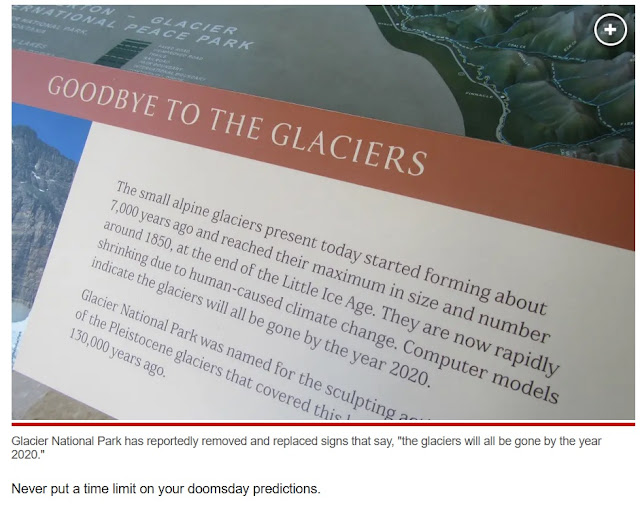Stephen Hawking's end-of-world prediction supported by NASA
NASA has announced that the world as we know it may be facing significant existential threats, lining up with physicist Stephen Hawking's prediction.
In The Search for a New Earth, Hawking warned that unless humanity changes its ways, by 2600 the planet would turn into a gigantic ball of fire.
_________________________________--
All righty then people, sell your cars today and walk everywhere. We don't all want to die in 2590 now, do we?
_________________________
HURRICANES NOT TRIGGERED BY "CLIMATE CHANGE"
The Real Cause of Weather-Related Deaths
By Vijay Jayaraj
Despite fearmongering about climate change supercharging natural disasters, weather-related deaths have declined dramatically.
According to the Emergency Event Database, the total global deaths per decade from climate-related disasters has fallen by more than 96% since the 1920s. Data show that between 1960 and 2020, there was an unprecedented decrease in climate-related deaths compared to the period between 1920 and 1959.
This decline is even more impressive considering that the global population has more than quadrupled during this period, from about 2 billion in 1920 to nearly 8 billion by 2020.
The dramatic reduction in fatalities is not just a statistic; it represents a fundamental improvement in our species’ ability to adapt and withstand the forces of nature. It’s a story of triumph over adversity and of innovation in the face of danger.
https://wattsupwiththat.com/2024/10/04/the-real-cause-of-weather-related-deaths/
_______________
AUGUST 2024 REPORT ON GREAT BARRIER REEF CONTRADICTS THE BAD NEWS CULT
Parts of Great Barrier Reef record highest amount of coral in 36 years | CNN
NASA GLOBAL MEAN TEMPERATURES SINCE 1880 GRAPHED IN PERSPECTIVE TO TEMPERATURES HUMANS EXPERIENCE, RATHER THAN A 3 DEGREE RANGE
THIS IS THE SAME DATA SCALED TO FRIGHTEN YOU INTO PANIC AND OBEDIENCE
Movie exposes the false climate change paranoia
Climate: The Movie (youtube.com)
____________
________________________
"If we all worked on the assumption that what is accepted as true is really true, there would be little hope of advance." - Orville Wright
December 3, 2023
Why Scientists Disagree
About Global Warming
The NIPCC Report
on Scientific Consensus
Craig D. Idso, Robert M. Carter, S. Fred Singer
NIPCC
Nongovernmental International Panel on Climate Change
(110 Pages Book)
xix
Key Findings
Key findings of this book include the following:
No Consensus
# The most important fact about climate science, often overlooked, is that
scientists disagree about the environmental impacts of the combustion
of fossil fuels on the global climate.
# The articles and surveys most commonly cited as showing support for
a “scientific consensus” in favor of the catastrophic man-made global
warming hypothesis are without exception methodologically flawed
and often deliberately misleading.
# There is no survey or study showing “consensus” on the most important
scientific issues in the climate change debate.
# Extensive survey data show deep disagreement among scientists on
scientific issues that must be resolved before the man-made global
warming hypothesis can be validated. Many prominent experts and
probably most working scientists disagree with the claims made by the
United Nations’ Intergovernmental Panel on Climate Change (IPCC).
Why Scientists Disagree
# Climate is an interdisciplinary subject requiring insights from many
fields of study. Very few scholars have mastery of more than one or
two of these disciplines.
# Fundamental uncertainties arise from insufficient observational
evidence, disagreements over how to interpret data, and how to set the
parameters of models.
xix
xx WHY SCIENTISTS DISAGREE ABOUT GLOBAL WARMING
# IPCC, created to find and disseminate research finding a human impact
on global climate, is not a credible source. It is agenda-driven, a
political rather than scientific body, and some allege it is corrupt.
# Climate scientists, like all humans, can be biased. Origins of bias
include careerism, grant-seeking, political views, and confirmation bias.
Scientific Method vs. Political Science
# The hypothesis implicit in all IPCC writings, though rarely explicitly
stated, is that dangerous global warming is resulting, or will result, from
human-related greenhouse gas emissions.
# The null hypothesis is that currently observed changes in global climate
indices and the physical environment, as well as current changes in
animal and plant characteristics, are the result of natural variability.
# In contradiction of the scientific method, IPCC assumes its implicit
hypothesis is correct and that its only duty is to collect evidence and
make plausible arguments in the hypothesis’s favor.
Flawed Projections
# IPCC and virtually all the governments of the world depend on global
climate models (GCMs) to forecast the effects of human-related
greenhouse gas emissions on the climate.
# GCMs systematically over-estimate the sensitivity of climate to carbon
dioxide (CO2), many known forcings and feedbacks are poorly
modeled, and modelers exclude forcings and feedbacks that run counter
to their mission to find a human influence on climate.
# NIPCC estimates a doubling of CO 2 from pre-industrial levels (from
280 to 560 ppm) would likely produce a temperature forcing of 3.7
Wm-2 in the lower atmosphere, for about ~1°C of prima facie warming.
# Four specific forecasts made by GCMs have been falsified by
real-world data from a wide variety of sources. In particular, there has
been no global warming for some 18 years.
xxi
KEY FINDINGS
False Postulates
# Neither the rate nor the magnitude of the reported late twentieth century
surface warming (1979–2000) lay outside normal natural variability.
# The late twentieth century warm peak was of no greater magnitude than
previous peaks caused entirely by natural forcings and feedbacks.
# Historically, increases in atmospheric CO2 followed increases in
temperature, they did not precede them. Therefore, CO2 levels could not
have forced temperatures to rise.
# Solar forcings are not too small to explain twentieth century warming.
In fact, their effect could be equal to or greater than the effect of CO2
in the atmosphere.
# A warming of 2°C or more during the twenty-first century would
probably not be harmful, on balance, because many areas of the world
would benefit from or adjust to climate change.
Unreliable Circumstantial Evidence
# Melting of Arctic sea ice and polar icecaps is not occurring at
“unnatural” rates and does not constitute evidence of a human impact
on the climate.
# Best available data show sea-level rise is not accelerating. Local and
regional sea levels continue to exhibit typical natural variability – in
some places rising and in others falling.
# The link between warming and drought is weak, and by some measures
drought decreased over the twentieth century. Changes in the
hydrosphere of this type are regionally highly variable and show a
closer correlation with multidecadal climate rhythmicity than they do
with global temperature.
# No convincing relationship has been established between warming over
the past 100 years and increases in extreme weather events.
xxii WHY SCIENTISTS DISAGREE ABOUT GLOBAL WARMING
Meteorological science suggests just the opposite: A warmer world will
see milder weather patterns.
# No evidence exists that current changes in Arctic permafrost are other
than natural or are likely to cause a climate catastrophe by releasing
methane into the atmosphere.
Policy Implications
# Rather than rely exclusively on IPCC for scientific advice,
policymakers should seek out advice from independent, nongovernment
organizations and scientists who are free of financial and political
conflicts of interest.
# Individual nations should take charge of setting their own climate
policies based upon the hazards that apply to their particular geography,
geology, weather, and culture.
# Rather than invest scarce world resources in a quixotic campaign based
on politicized and unreliable science, world leaders would do well to
turn their attention to the real problems their people and their planet face.
John Clauser, is a theoretical and experimental physicist who cheerfully calls himself a “climate change denialist.” A graduate of Cal Tech and Columbia University, in 2022 he received the Nobel Prize in Physics.
______________________
The Political Origins of the Climate Change Swindle
by Lynne Balzer
August 15, 2023
https://climatechangedispatch.com/the-political-origins-of-the-climate-change-swindle/
A Canadian oil magnate and friend of David Rockefeller, Maurice Strong, set up the Intergovernmental Panel on Climate Change (IPCC) in 1992.
Strong had been chairman of the 1972 Earth Day UN Conference, at which he advocated population reduction and the lowering of living standards in the interest of “saving the environment.” [emphasis, links added]
Strong asked, “Isn’t the only hope for the planet that the industrialized civilizations collapse? Isn’t it our responsibility to bring that about?”
He also boldly claimed, “Current lifestyles and consumption patterns of the affluent middle class – involving meat intake, use of fossil fuels, appliances, air-conditioning, and suburban housing – are not sustainable.”
______________
New York Post article - 2020
All 29 glaciers are still in Glacier National Park
__________________________
Oceans aren't rising either.
Obama's $14,000,000 oceanfront mansion is one mile to the west of Nantucket, on Martha's Vineyard
He bought it after telling Americans, "Climate change is the biggest threat facing America."














Comments
Post a Comment